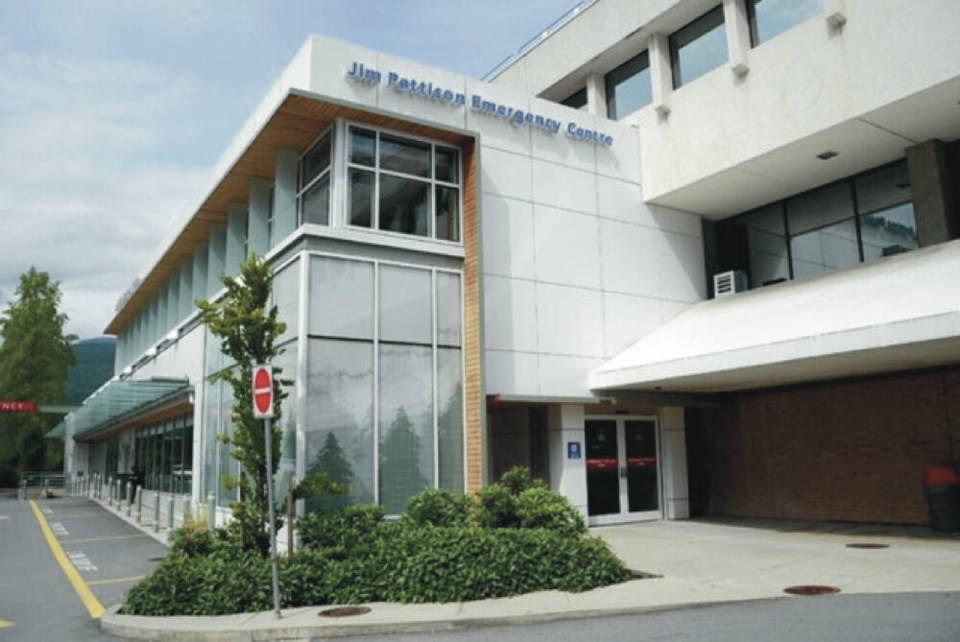Nurses at Lions Gate Hospital will have a bit of extra backup next year when facing potentially violent situations on the job.
The North Shore hospital is one of 26 around the province where new in-house protection officers will be hired to help deal with verbal and physical threats to health-care staff.
That can’t come soon enough, according to Kath-Ann Terrett, regional chair of the Coast Mountain region for the BC Nurses Union.
Terrett said in the years she worked at Lions Gate she saw the level of violence directed at nurses increase dramatically. Since then, it’s only gotten worse, she said.
Nurses have to deal with everything from being sworn at and harassed to being physically grabbed and hit, she said.
“The ER gets the brunt of it,” she said. The emergency department sees many patients who are mentally ill or dealing with substance abuse as well as those in extreme physical pain or health-care crisis, she said.
“The amount of mental health crisis is 10 or 20 times higher than it was 20 years ago,” said Terrett.
Staff shortages have played a part, she added.
“When you hear the nurse say, ‘I’ll be there in a minute’ for the 15th time,” it sometimes causes patients to lash out, said Terrett.
In some cases, people are on prescription medications or dealing with drug interactions “that cause people not be their usual self,” she said.
Dementia patients may also experience agitation and become physically violent as part of the illness that affects their brain’s cognitive functioning.
In recent years, the number of WorkSafeBC claims for both physical injuries and PTSD by health-care staff has increased.
According to the province, violence was the second most common cause of nurses and health-care assistants being off work between 2015 and 2019.
Currently, private security guards help provide assistance at the hospital when needed.
Under the plan announced by the province at the end of October, however, new in-house protection officers will be specifically trained to deal with the kinds of situations encountered in health-care settings. De-escalating situations involving patients in mental health crisis will be particularly helpful, said Terrett. “There’s a special way of talking to them and intervening with them. The first part is listening.”
So far it hasn’t been announced just how many of the new protection staff will be allocated to Lions Gate or whether they will replace or complement existing security guards.
The news comes as work is wrapping up on a new emergency mental health unit at Lions Gate, intended to provide quicker assessments and specialized care to patients experiencing mental health crises.
When completed by the end of this year, the specialized emergency psychiatric assessment unit will be able to triage and stabilize patients who are dealing with mental health or substance use emergencies.
The unit will include four beds in private rooms and a lounge area with space for four more patients.
The new unit, being built at a cost of over $3 million, will be staffed by two psychiatrists dedicated to the unit as well as specially trained nurses.
Another part of the work underway at Lions Gate involves reconfiguring the emergency department to improve sight lines from the nursing station to patient waiting areas in an effort to improve safety.
While the hospital’s new emergency department was state of the art when it opened 13 years ago, there have been substantial changes since then, according to the Lions Gate Hospital Foundation.
The number of patients going through the emergency department is up 40 per cent since 2009 – from 40,000 patients annually to 65,000.
Of those, about 3,500 need emergency care for a mental health or substance use issue, compared to 1,800 dealing with similar issues in 2009. About 17 per cent of those patients are under 19, according to the foundation.




